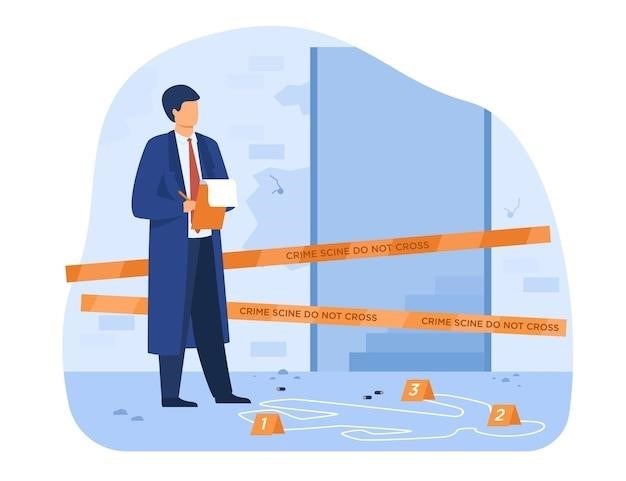In today’s world, it’s easy to feel vulnerable. But by taking some simple precautions, you can reduce the risk of becoming a victim of crime. This guide will provide you with practical advice on how to stay safe, both in public and at home. We’ll cover everything from situational awareness to online safety. Remember, staying safe is a proactive effort, and by following these tips, you can increase your chances of staying safe and avoiding dangerous situations.
Introduction
Living in a world where crime is a constant threat can be daunting. It’s easy to get caught up in the day-to-day hustle, forgetting about the potential dangers lurking around every corner. But it’s crucial to remember that taking precautions and practicing self-awareness can significantly reduce the risk of becoming a victim. This guide aims to equip you with knowledge and practical tips to navigate the world with increased safety and peace of mind. We’ll explore a range of strategies, from recognizing potential threats to securing your home and staying safe online. By understanding the importance of personal safety and implementing these measures, you can empower yourself to live a more secure and fulfilling life.
This guide is not about living in fear or paranoia, but rather about making informed decisions and taking proactive steps to minimize risks. It’s about taking control of your safety and understanding that being prepared and aware is your first line of defense. Remember, you are not alone in this journey. Many resources and communities exist to support you in staying safe and informed. Let’s dive into the world of personal safety and learn how to navigate it with confidence.

Awareness⁚ Your First Line of Defense
The first step towards personal safety is cultivating a heightened awareness of your surroundings. This doesn’t mean living in constant fear, but rather being mindful of your environment and the people around you. It’s about recognizing potential threats and understanding the subtle cues that can signal danger. A simple example is noticing if someone is following you, or if a car seems to be circling your block. Trust your instincts ⏤ if something feels off, it probably is.
Awareness is a crucial aspect of personal safety. It’s about being present in the moment and observing your surroundings actively. This doesn’t mean being paranoid, but rather being attentive to what’s happening around you. It’s about recognizing potential threats and understanding the subtle cues that can signal danger. By being more aware, you’re more likely to identify potential risks and take steps to avoid them. This proactive approach is essential in staying safe.
Think of awareness as a shield – the more aware you are, the stronger your shield becomes against potential threats. It’s not about being scared, but about being prepared and informed.
Situational Awareness
Situational awareness goes beyond general awareness; it involves actively assessing your environment and identifying potential risks. It’s about understanding the context of your surroundings and recognizing potential threats. Think of it as a mental checklist⁚
- Who is around you? Pay attention to the people in your vicinity. Are they acting suspiciously? Do they seem to be watching you?
- What is the lighting like? Are you in a well-lit area, or is it dark and secluded?
- Are there escape routes? If you need to get away quickly, do you have clear paths to safety?
By analyzing these factors, you can quickly assess potential risks and adjust your behavior accordingly. For example, if you’re walking alone at night and notice someone following you, you might choose to change direction or head towards a well-populated area.
Situational awareness is a skill that can be developed over time. The more you practice, the more natural it will become. It’s a valuable tool for staying safe in any situation.
Trust Your Instincts
Your gut feeling is often a powerful indicator of danger. If you feel uncomfortable in a situation, even if you can’t pinpoint why, it’s important to trust your instincts and take steps to remove yourself from the situation. Don’t dismiss that feeling as paranoia; it could be your subconscious mind picking up on subtle cues that you are consciously unaware of.
Here are some examples of situations where you might trust your instincts⁚
- A stranger approaches you and makes you feel uneasy. You might feel compelled to cross the street or walk in the opposite direction.
- You’re walking alone at night and notice someone following you. Your instincts might tell you to speed up or find a well-lit, populated area.
- You’re in a social setting and feel like someone is making you uncomfortable. You might decide to leave the gathering or distance yourself from the person.
Remember, it’s better to be safe than sorry. If something feels wrong, it probably is. Don’t be afraid to trust your instincts and take action to protect yourself.
Stay Alert in Public Places
Staying alert in public places is crucial for personal safety. It means being aware of your surroundings and the people around you. When you’re alert, you’re less likely to be caught off guard by a potential threat and can react quickly if necessary.
Here are some tips for staying alert in public places⁚
- Keep your head up and scan your surroundings. Avoid being distracted by your phone or other devices. Pay attention to people and activities around you, especially in crowded areas.
- Be aware of your surroundings. Note exits, potential hiding places, and any suspicious activity. Trust your gut feeling if something seems off.
- Travel in well-lit areas. Avoid poorly lit streets, parking lots, and alleys. These areas can be more attractive to criminals.
- Be aware of your personal belongings. Keep your purse or backpack close to you and don’t leave valuables unattended.
- Travel with a friend or group. There’s safety in numbers.
- Avoid walking alone at night, especially in unfamiliar areas. If you must, consider taking a taxi or ride-sharing service.
- Take a self-defense class. Knowing how to protect yourself can boost your confidence and give you the skills you need to defend yourself in a dangerous situation;
Being alert and aware is your best defense against potential threats. It’s about being proactive and taking steps to minimize your risk of becoming a victim.
Protecting Yourself at Home
Your home should be your safe haven, but it’s important to take precautions to ensure it remains secure. Criminals often target homes because they are seen as easy targets. By taking some simple steps, you can significantly reduce your risk of becoming a victim of crime at home.
Here are some tips for protecting yourself at home⁚
- Install a home security system. A security system can deter criminals and alert authorities if an intruder breaks in.
- Make sure your doors and windows are secure. Install deadbolt locks on all exterior doors, and make sure windows are locked.
- Keep your home well-lit. Install motion-activated lights outside your home to deter criminals;
- Don’t leave valuables in plain sight. Store valuable items in a safe or secure location.
- Be careful about who you let into your home. Don’t open your door to strangers, and be wary of anyone who seems suspicious.
- Don’t advertise your absence on social media. Avoid posting about your travel plans or when you’ll be away from home.
- Get to know your neighbors. A strong neighborhood watch can help deter crime.
- Report any suspicious activity to the police. If you see something that seems out of place, don’t hesitate to call the authorities.
By taking these precautions, you can create a safer environment for yourself and your family. Remember, your home should be a place where you feel safe and secure.
Home Security Measures
Securing your home is paramount to protecting yourself and your loved ones. It’s not just about deterring intruders, but also about creating a sense of safety and peace of mind. While a comprehensive security system might seem expensive, investing in even basic measures can make a world of difference.
Here are some practical home security measures you can implement⁚
- Install a robust door lock system⁚ Upgrade your door locks to deadbolts, which are much harder to force open. Consider installing smart locks that allow you to control access remotely.
- Reinforce vulnerable entry points⁚ Install security bars or grilles on windows, particularly on the ground floor. Consider using reinforced doors and window frames.
- Invest in a security system⁚ A professionally installed security system with motion sensors, alarms, and remote monitoring can provide significant protection and peace of mind.
- Illuminate your property⁚ Install motion-activated outdoor lights to deter intruders and improve visibility around your home.
- Maintain a secure perimeter⁚ Trim overgrown bushes and trees that could provide cover for intruders. Secure gates and fences.
- Implement a neighbor watch⁚ Get to know your neighbors and encourage them to report any suspicious activity. A vigilant community can deter crime.
Remember, security is an ongoing process. Regularly review your security measures and update them as needed to ensure your home remains a safe and secure haven.
Safeguarding Your Personal Information
In the digital age, our personal information is more vulnerable than ever. From identity theft to online scams, the risks are real and growing. Protecting your personal information is crucial for your safety and well-being. Here are some essential steps to take⁚
- Be cautious about sharing information online⁚ Think twice before sharing personal details like your address, phone number, or financial information on social media or public websites.
- Use strong passwords and two-factor authentication⁚ Create complex passwords for all your online accounts and enable two-factor authentication wherever possible.
- Be aware of phishing scams⁚ Don’t click on suspicious links in emails or text messages. Verify the sender’s identity before providing any personal information.
- Protect your devices⁚ Use strong passwords and antivirus software on your computers and smartphones. Keep your software updated to patch security vulnerabilities.
- Be mindful of public Wi-Fi⁚ Avoid accessing sensitive information like banking or online shopping on public Wi-Fi networks. Use a virtual private network (VPN) for added security.
- Monitor your credit report⁚ Check your credit report regularly for any unauthorized activity. You can obtain a free credit report from each of the three major credit bureaus annually.
By following these tips, you can take proactive steps to protect your personal information and mitigate the risks of identity theft and other online scams. Remember, staying vigilant and informed is key to safeguarding your digital security.
Online Safety
The internet has become an integral part of our lives, offering a wealth of information, connection, and entertainment. However, it also presents unique challenges to our safety. Online predators, cyberbullying, and scams are just a few of the dangers lurking in the digital world. Here are some essential tips to help you stay safe online⁚
- Be mindful of what you share⁚ Think twice before posting personal information online, including your address, phone number, or details about your daily routines.
- Be cautious of strangers⁚ Treat online interactions with strangers with the same caution you would in real life. Don’t share personal information with people you don’t know, and be wary of requests for financial assistance.
- Protect your privacy settings⁚ Review and adjust your privacy settings on social media platforms to limit who can see your posts and information.
- Report suspicious activity⁚ If you encounter any suspicious activity or content online, report it to the appropriate authorities or platform.
- Be aware of scams⁚ Be cautious of unsolicited emails or messages promising unrealistic rewards or asking for personal information.
- Use strong passwords and two-factor authentication⁚ Create complex passwords for all your online accounts and enable two-factor authentication wherever possible.
- Keep your software updated⁚ Regularly update your operating system, web browser, and other software to patch security vulnerabilities.
By following these tips, you can create a safer online experience and protect yourself from potential dangers. Remember, staying informed and being cautious is crucial for navigating the online world safely.
Staying Safe While Driving
Driving is an everyday activity for many, but it can also be a risky one. Distracted driving, impaired driving, and aggressive behavior on the road all contribute to accidents and injuries. Here are some tips to help you stay safe while driving⁚
- Avoid distractions⁚ Put your phone away, turn off the radio, and resist the urge to eat or drink while driving. Focus your attention on the road.
- Never drive under the influence⁚ Alcohol and drugs impair your judgment and reaction time. If you’re going to be drinking, make sure to have a designated driver or use public transportation.
- Be aware of your surroundings⁚ Pay attention to other drivers, pedestrians, and road conditions. Be prepared to react quickly to unexpected situations.
- Maintain a safe distance⁚ Leave enough space between your car and the car in front of you to allow for safe braking.
- Obey traffic laws⁚ Follow speed limits, stop signs, and traffic signals. Avoid aggressive driving behaviors like tailgating or speeding.
- Check your vehicle⁚ Make sure your car is in good working order, including brakes, tires, and lights. Regular maintenance can help prevent accidents.
- Be prepared for emergencies⁚ Keep a first-aid kit, flashlight, and emergency contact information in your car.
By following these tips, you can make your driving experience safer for yourself and others. Remember, responsible driving is a shared responsibility.
Traveling Safely
Traveling can be an exciting and enriching experience, but it’s important to prioritize safety, especially when venturing into unfamiliar territory. Here are some tips to help you stay safe while traveling⁚
- Research your destination⁚ Familiarize yourself with local customs, laws, and potential risks. Understand the safety protocols in place and be aware of areas to avoid.
- Keep your valuables secure⁚ Don’t flaunt expensive jewelry or gadgets, and be mindful of where you keep your passport, money, and other important documents. Use secure travel bags and keep your valuables close to you.
- Share your itinerary⁚ Inform trusted friends or family members about your travel plans, including your destinations and accommodation details. This way, someone knows where you are in case of emergencies.
- Be cautious with strangers⁚ Avoid engaging in conversations with strangers who seem overly friendly or pushy. Trust your instincts and be wary of anyone who seems suspicious.
- Use reputable transportation⁚ Opt for licensed taxis, reliable tour companies, and well-maintained public transportation. Be cautious about using ride-sharing services in unfamiliar areas.
- Stay in safe accommodations⁚ Choose accommodations in well-lit, secure areas, with good reviews and security measures. Consider the safety of the neighborhood and avoid staying in isolated or unfamiliar locations.
- Stay aware of your surroundings⁚ Be mindful of your surroundings, especially in crowded areas or at night. Avoid walking alone in dark or deserted areas.
Remember, being proactive and aware of your surroundings can significantly reduce the risk of becoming a victim of crime while traveling. Enjoy your journey, but don’t forget to stay vigilant and prioritize your safety.




About the author